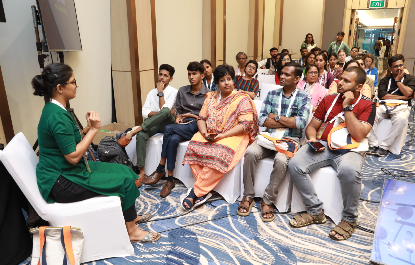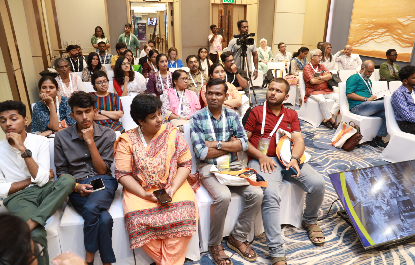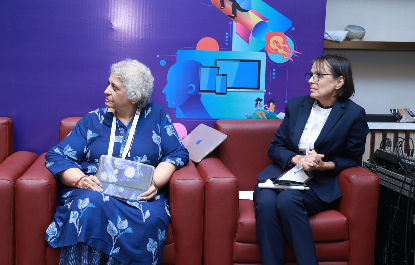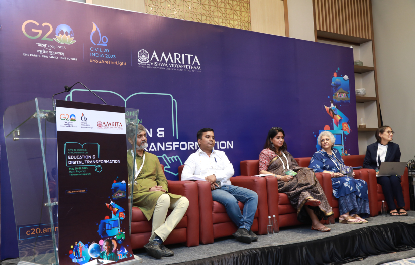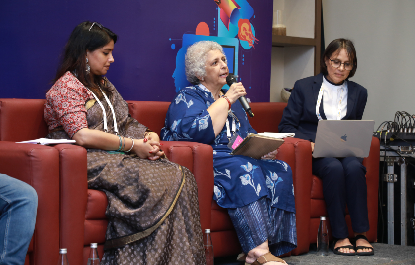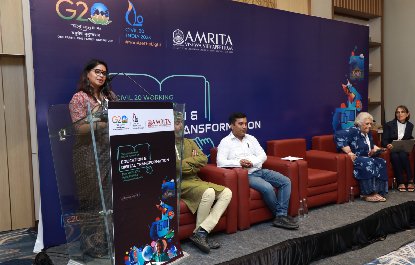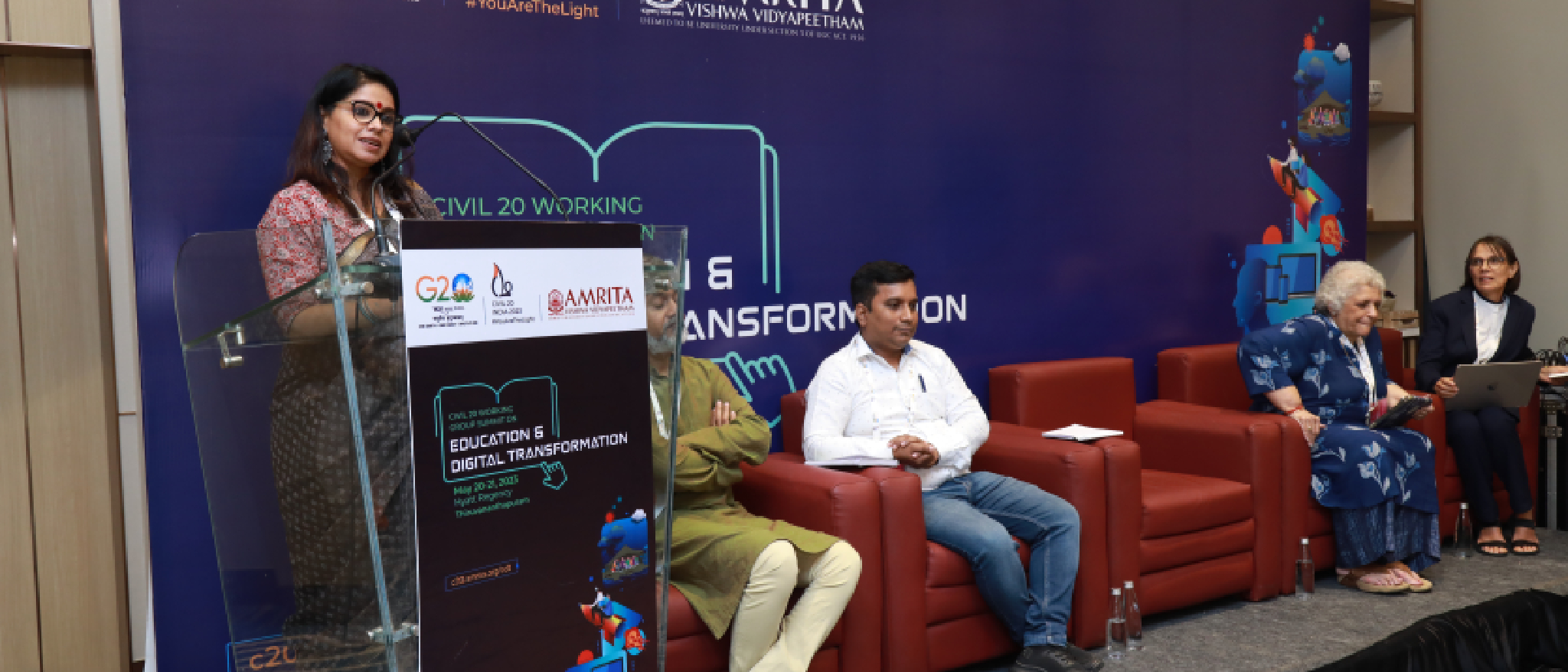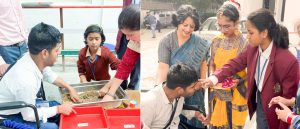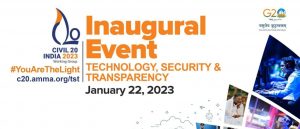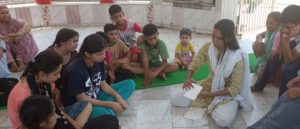C20 EDT Summit: Panel Discussion on Education for Inclusion and Accessibility
At the Education and Digital Transformation Summit, a panel discussion on Education for Inclusion and Accessibility was held on May 20. The prominent panelists were Prof. Dan Wagner, UNESCO Chair in Learning and Literacy, University of Pennsylvania, USA; Dr. Ajay Kumar Singh, State Coordinator, Inclusive Education & OSD IEB, Directorate of Education, New Delhi; Ms. Barsha Banerjee, Managing Director, Perkins School for Blind; Ms. Kate Currawala, President, Maharashtra Dyslexia Association; and Mr. Rishikesh B S, Associate Director, School of Education, Azim Premji Foundation. The session was moderated by Sel Shah, Amrita University.
Prof. Dan Wagner underscored the importance of reaching impoverished and underprivileged children and promoting learning equity. He said it is essential to address the specific needs of children as it can significantly improve education quality and depth. Drawing attention to the limitations of technology he added that it is critical to address the specific educational needs of the most disadvantaged populations. Factors like inadequate schools, remote rural communities, untrained teachers, illiterate parents, and official languages need to be considered alongside accessibility concerns, he added.
Dr. Ajay Kumar Singh explained how his organization promotes inclusive education and accessibility in schools by organizing medical camps, fostering an inclusive environment, providing cross-disability training for special education teachers, and exploring the feasibility of alternative approaches, like home education. The organization creates inclusive teaching materials and resource centres for assessment, counselling, and therapy to support students at multiple levels. He emphasized that an inclusive school environment can be achieved through audits, gap analyses, and international collaborations.
Ms. Barsha Banerjee addressed the global issue of visual impairments, underlining the challenges experienced by children with disabilities in their educational path, primarily due to a lack of awareness and understanding among the general public. Perkins School for the Blind developed a scaling-ready approach. She emphasized the role of storytelling to inspire and empower others by using its persuasive power.
Ms. Kate Currawala believes that dyslexia screening for children at the start of school is crucial for preventing emotional distress. Early detection and intervention are essential to ensure the well-being and success of dyslexic children. She suggested a screening tool to identify at-risk students in the classroom as early as the age of five. An essential point that she drew attention to is that children often mask their difficulties, and later when the academic demands increase, they begin to exhibit signs of learning differences.
Mr. Rishikesh B S reinforced the panel’s message, emphasizing the utmost importance of prioritizing the child, and urged educators to adopt a child-centred approach in all endeavours. Adopting a child-centred approach is crucial for fostering an inclusive school culture, as exclusion exists at multiple levels and continues to persist at a systems level.
Each panelist articulated a key message: the need to look beyond technology as a sole solution and channel efforts toward designing comprehensive and holistic solutions that improve children’s learning experiences.
Speakers
Prof. Dan Wagner, UNESCO Chair in Learning and Literacy, University of Pennsylvania, USA
Dr. Ajay Kumar Singh, State Coordinator, Inclusive Education & OSD IEB, Directorate of Education, New Delhi
Ms. Barsha Banerjee, Managing Director, Perkins School for Blind
Ms. Kate Currawala, President, Maharashtra Dyslexia Association
Mr. Rishikesh B S, Associate Director, School of Education, Azim Premji Foundation
